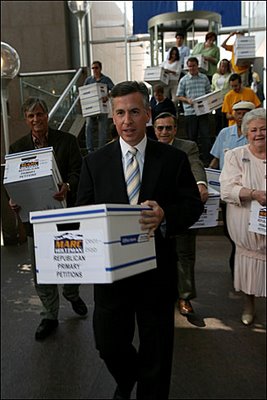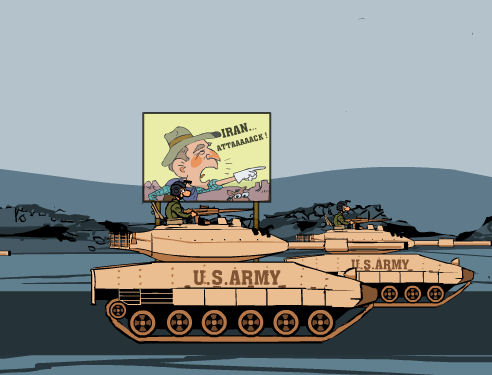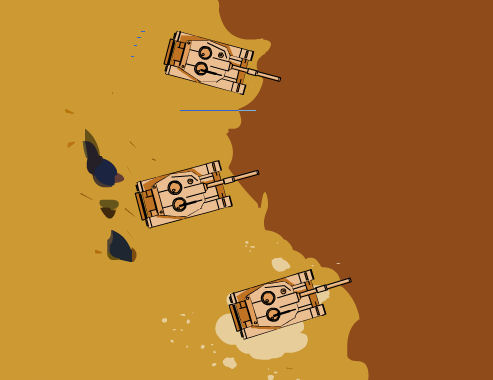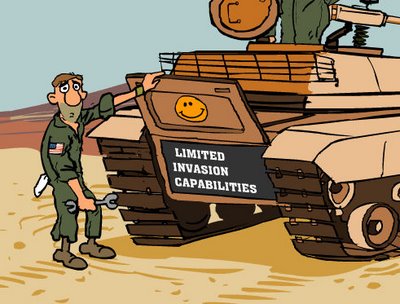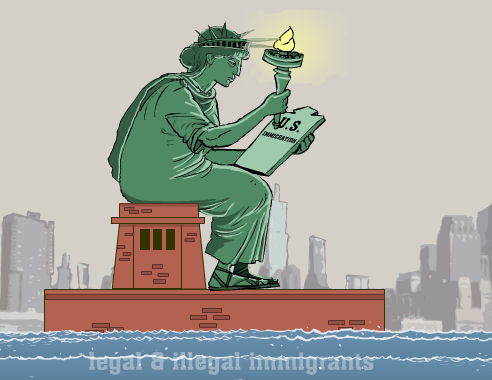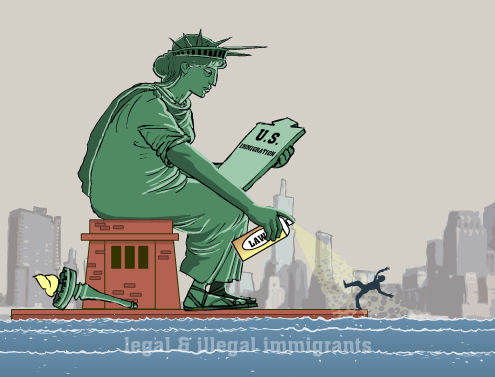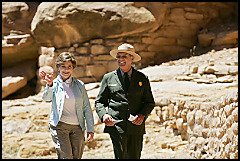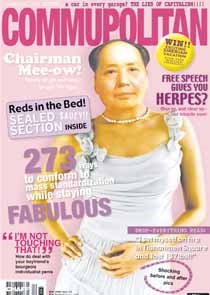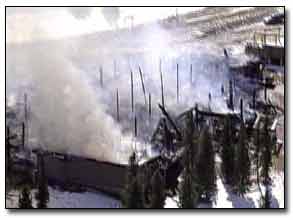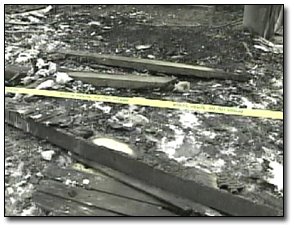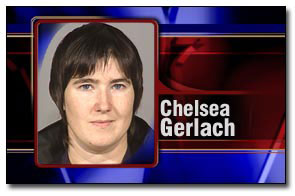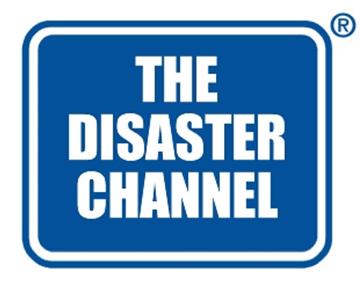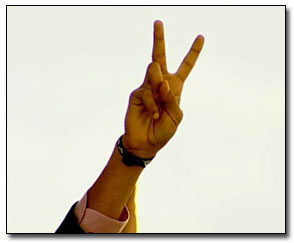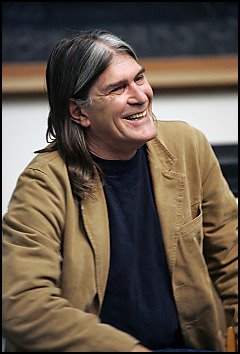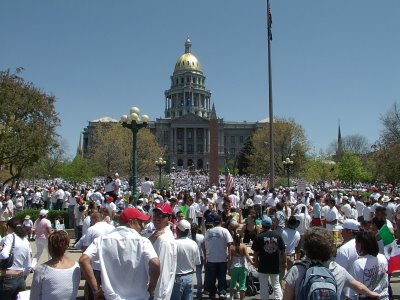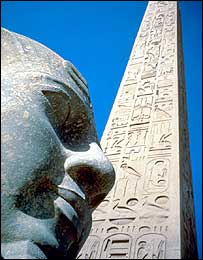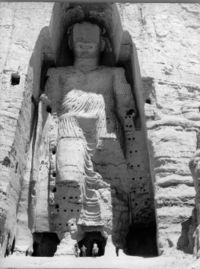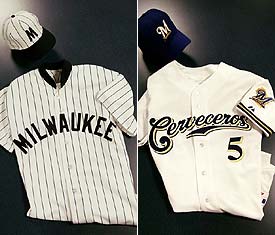First,
duh--the nicknames "Shitting Bull" and "Walking Eagle" now official. Second, this is but the first step toward
possible punishment. There are quite a few more hurdles to jump before Churchill faces any real sanctions. Text here (
pdf). 9NEWS has a huge
video roundup of the press conference, as well as reaction from Gov. Bill Owens. Churchill, inevitably,
responds.
PLAGIARISM. FALSIFICATION. FABRICATION. And more:
BOULDER, Colo. -- A University of Colorado investigative committee reviewing the writings of professor Ward Churchill has unanimously determined that he did commit serious academic misconduct, including several instances of plagiarism, falsification and fabrication, according to a report released Tuesday.
"The Committee found that Professor Churchill's misconduct was deliberate and not a matter of an occasional careless error," the report said. "The Committee has found repeated instances of his practice of fabricating details or ostensible written evidence to buttress his broader ideological arguments."
Churchill has repeatedly denied doing anything wrong. Churchill said he had no comment about the report.
The committee has been looking into seven cases in which the embattled ethnic studies professor is accused of falsifying data or misrepresenting historical facts in his scholarly work.
The five-member committee differed on what sanctions to impose. Three members of the committee believe his actions are so serious that dismissal from CU is not an improper sanction. However, only one of these three professors recommended dismissal. The other two members recommended that he be suspended from CU without pay for five years.
Two other members of the five-member committee don't think he should be fired. They don't think his conduct is so serious as to revoke his tenure and recommended that he be suspended without pay for two years.
The committee's recommendations are not binding and the decision on Churchill's future will be made by university officials later this year. Churchill has said if he is fired, he will file a lawsuit that could drag on for years.
Just to repeat--Lies ≠ Academic FreedomThe committee's findings:
The Committee’s investigation of the seven allegations before us has unanimously found, by a preponderance of the evidence, that Professor Churchill committed several forms of academic misconduct as defined in the policy statements of the University of Colorado at Boulder and the University of Colorado system:231
1. Falsification, as discussed in Allegations A, B, C, and D.
2. Fabrication, as discussed in Allegations C and D.
3. Plagiarism, as discussed in Allegations E and G.
4. Failure to comply with established standards regarding author names on publications, as discussed most fully in Allegation F but also in Allegations A, B, and D.
5. Serious deviation from accepted practices in reporting results from research, as discussed in Allegation D.
We did not find plagiarism in Allegation F.
Of course, the committee did not hesitate to take some rather large swipes at the media, politicians, "researchers" and internet sources (e.g. blogs) for fomenting "public animosity":
There is another factor as well that we believe requires consideration by those who must decide on the proper sanction for Professor Churchill’s misconduct: the role of some media outlets and certain public figures in stirring up public animosity toward him and the University of Colorado. Political interference in the University’s processes and decisions has recently undergone one of its periodic spikes, causing in some cases only a regrettable waste of resources, but in others actual threats to academic freedom and the best traditions of higher education. Although the great majority of the University of Colorado’s funding comes from other sources, the State continues to provide some support. We appreciate that citizens of the State are entitled to take a proprietary interest in the way the institution conducts its business, despite the declining role of state financial support. Indeed, those of us on the Colorado faculty depend in many ways on the citizens of Colorado and their loyalty and (in the best case) affection. The two of us who teach at other state universities also recognize this relationship in our own States. Moreover, we cannot deny that the University has, in many instances during the past few years, mismanaged its affairs in a way that lends support to its critics. (Some of us have been among those critics.) But at the same time we have seen some elected officials exploit the legitimate concerns of their constituents and transform them into an agenda that weakens higher education in Colorado.
But wait, there's more!
The role of the public and press in attacking Professor Churchill is part of a more general opening up of the academic world to wider participation over the past 20 years. Debates that would previously have been conducted within the academic world itself by scholars who worked in a given field are now matters of public knowledge and sometimes of considerable public interest.
As it should be, since academia produces our history, sociology, psychology, etc. and influence trends in every field, especially and most clearly in promoting the political correctness of the last two decades. This is important enough and justly deserves public scrutiny.
Everyone is able to express opinions about academic issues by contacting the media, posting ideas on the web or internet, or sending e-mails directly to the scholars involved.
God forbid! Free Speech?!?!?!?! Oh my, what a "chilling effect"!
While this expansion of discussion has many positive features, it contains some worrying characteristics too. Members of the press have acquired considerable power to advance or harm scholarly reputations, especially for people who frequently appear in public venues and who advocate controversial positions about contemporary issues. Circulation figures rise if news media prepare accounts that grab public attention, sometimes irrespective of complete accuracy. Short news segments do not lend themselves to balanced reports of complex arguments. The ease of posting or sending anonymous statements on the web or e-mail has weakened previous expectations for accuracy and civility in debate over public issues. It may be difficult to assess the reliability of such statements and impossible to determine the motives of those who send them. Scholars who are described in negative terms in the news are sometimes subjected to vicious personal attacks on web pages or by e-mail.
So publishing vicious, anti-American rhetoric is okay, and perfectly fine in terms of free speech (which it is, however misguided or stupid), but it is not okay to take those people to task, to criticize them personally?
These changes in communication can have particular impact when an accusation of academic wrongdoing becomes a matter of public interest. People without formal training in a particular field of scholarship are able to assert just as forcefully as specialists that someone has falsified or misused evidence or has offered unwarranted interpretations.
Lies are lies are lies. Plagiarism charges usually do not warrant an academic inquiry simply to detect them, just ask that Harvard author who borrowed other's words, got caught, and lost her advance.
In this case, both the University administration and Professor Churchill relied at times on assertions made by “researchers” with no formal qualifications, background, or training about the topics under consideration. A recent book that discusses instances of alleged academic misconduct emphasizes that the outcomes of such accusations are heavily influenced by the extent of media/web/internet involvement. Another analysis stresses the power of political groups and advocacy organizations in promoting charges of scholarly wrongdoing. Focusing on historians, its author suggests that publications that question traditional American values may be scrutinized with particular intensity by people in the wider community. If any evidence of misconduct is found, scholars who critique accepted views are far more likely to be fired from their jobs—not just reprimanded—than are academics who support familiar interpretations.
What about those with "no formal qualifications, background, or training" who nevertheless asserted that not only were the accusations incorrect, but politically motivated. Sure, phony experts *cough, Churchill, cough* can be trotted out to support any position or make an argument, just ask the conspiracy theorists and moonbats on the Left.
Pirate Ballerina has more.
